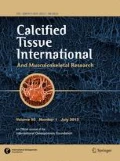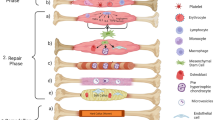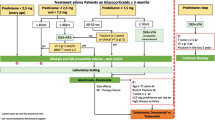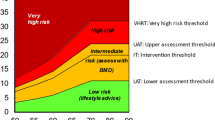Abstract
Nonsteroidal anti-inflammatory drugs (NSAIDs) are frequently used for postoperative pain control. However, concerns regarding the potential deleterious effects of NSAIDs on bone healing have compelled many physicians to avoid NSAIDs in patients with healing fractures, osteotomies, and fusions. We systematically reviewed and analyzed the best clinical evidence regarding the effects of NSAID exposure on bone healing. Medline, Embase, and Cochrane electronic databases were searched for prospective and retrospective clinical studies of fracture, osteotomy, and fusion studies of patients with NSAID exposure and nonunion as an outcome. Study quality was assessed using the Newcastle–Ottawa Scale. Data on study design, patient characteristics, and risk estimates were extracted. Pooled effect estimates were calculated. Subanalyses were performed by bone type and by NSAID dose, duration, and route of administration. In the initial analysis of 11 cohort and case-control studies, the pooled odds ratio for nonunion with NSAID exposure was 3.0 (95% confidence interval 1.6–5.6). A significant association between lower-quality studies and higher reported odds ratios for nonunion was observed. When only higher-quality studies were considered, seven spine fusion studies were analyzed, and no statistically significant association between NSAID exposure and nonunion was identified (odds ratio = 2.2, 95% confidence interval 0.8–6.3). There was no increased risk of nonunion with NSAID exposure when only the highest-quality studies were assessed. Randomized controlled trials assessing NSAID exposure in fracture, fusion, and osteotomy populations are warranted to confirm or refute the findings of this meta-analysis of observational studies.





Similar content being viewed by others
References
Kanakaris NK, Giannoudis PV (2007) The health economics of the treatment of long-bone non-unions. Injury 38:S77–S84
Calori GM, Albisetti W, Agus A, Iori S, Tagliabue L (2007) Risk factors contributing to fracture non-unions. Injury 38(suppl 2):S11–S18
Gaston MS, Simpson AHRW (2007) Inhibition of fracture healing. J Bone Joint Surg Br 12:1553–1560
Bergmann P, Schoutens A (1995) Prostaglandins and bone. Bone 4:485–488
Raisz LG (1999) Prostaglandins and bone: physiology and pathophysiology. Osteoarthritis Cartilage 4:419–421
Gerstenfeld LC, Thiede M, Seibert K, Mielke C, Phippard D, Svagr B, Cullinane D, Einhorn TA (2003) Differential inhibition of fracture healing by non-selective and cyclooxygenase-2 selective non-steroidal anti-inflammatory drugs. J Orthop Res 4:670–675
Arikawa T, Omura K, Morita I (2004) Regulation of bone morphogenetic protein-2 expression by endogenous prostaglandin E2 in human mesenchymal stem cells. J Cell Physiol 3:400–406
Paralkar VM, Grasser WA, Mansolf AL, Baumann AP, Owen TA, Smock SL, Martinovic S, Borovecki F, Vukicevic S, Ke HZ, Thompson DD (2002) Regulation of BMP-7 expression by retinoic acid and prostaglandin E(2). J Cell Physiol 2:207–217
Vuolteenaho K, Moilanen T, Moilanen E (2008) Non-steroidal anti-inflammatory drugs, cyclooxygenase-2 and the bone healing process. Basic Clin Pharmacol Toxicol 1:10–14
Gajraj NM (2003) Cyclooxygenase-2 inhibitors. Anesth Analg 6:1720–1738
Jirarattanaphochai K, Jung S (2008) Nonsteroidal antiinflammatory drugs for postoperative pain management after lumbar spine surgery: a meta-analysis of randomized controlled trials. J Neurosurg Spine 1:22–31
Anonymous (2009) Routine audit uncovered Reuben fraud. Anesthesiology News, p 3
White PF, Kehlet H, Liu S (2009) Perioperative analgesia: what do we still know? Anesth Analg 5:1364–1367
Adolphson P, Abbaszadegan H, Jonsson U, Dalen N, Sjoberg HE, Kalen S (1993) No effects of piroxicam on osteopenia and recovery after colles’ fracture. A randomized, double-blind, placebo-controlled, prospective trial. Arch Orthop Trauma Surg 3:127–130
Bhandari M, Tornetta P III, Sprague S, Najibi S, Petrisor B, Griffith L, Guyatt GH (2003) Predictors of reoperation following operative management of fractures of the tibial shaft. J Orthop Trauma 5:353–361
Bhattacharyya T, Levin R, Vrahas MS, Solomon DH (2005) Nonsteroidal antiinflammatory drugs and nonunion of humeral shaft fractures. Arthritis Care Res 3:364–367
Burd TA, Hughes MS, Anglen JO (2003) Heterotopic ossification prophylaxis with indomethacin increases the risk of long-bone nonunion. J Bone Joint Surg Br 85:700–705
Butcher CK, Marsh DR (1996) Nonsteroidal anti-inflammatory drugs delay tibial fracture union. Injury 5:375
Crawford CH III, Carreon LY, Djurasovic M, Glassman SD (2008) Lumbar fusion outcomes in patients with rheumatoid arthritis. Eur Spine J 6:822–825
Davis TRC, Ackroyd CE (1988) Non-steroidal anti-inflammatory agents in the management of colles’ fractures. Br J Clin Prac 5:184–189
Deguchi M, Rapoff AJ, Zdeblick TA (1998) Posterolateral fusion for isthmic spondylolisthesis in adults: analysis of fusion rate and clinical results. J Spinal Disord 6:459–464
Giannoudis PV, MacDonald DA, Matthews SJ, Smith RM, Furlong AJ, De Boer P (2000) Nonunion of the femoral diaphysis. J Bone Joint Surg Br 5:655–658
Glassman SD, Rose SM, Dimar JR, Puno RM, Campbell MJ, Johnson JR (1998) The effect of postoperative nonsteroidal anti-inflammatory drug administration on spinal fusion. Spine 7:834–838
Park SY, Moon SH, Park MS, Oh KS, Lee HM (2005) The effects of ketorolac injected via patient controlled analgesia postoperatively on spinal fusion. Yonsei Med J 2:245–251
Reuben SS (2004) The effects of non-steroidal anti-inflammatory drugs on spinal fusion. Acute Pain 2:41–45
Lumawig JM, Yamazaki A, Watanabe K (2009) Dose-dependent inhibition of diclofenac sodium on posterior lumbar interbody fusion rates. Spine J 5:343–349
Pradhan BB, Tatsumi RL, Gallina J, Kuhns CA, Wang JC, Dawson EG (2008) Ketorolac and spinal fusion: does the perioperative use of ketorolac really inhibit spinal fusion? Spine 19:2079–2082
Clarke S, Lecky F (2005) Best evidence topic report. Do non-steroidal anti-inflammatory drugs cause a delay in fracture healing? Emerg Med J 9:652–653
Dumont AS, Verma S, Dumont RJ, Hurlbert RJ (2000) Nonsteroidal anti-inflammatory drugs and bone metabolism in spinal fusion surgery: a pharmacological quandary. J Pharmacol Toxicol Methods 1:31–39
Perumal V, Roberts CS (2007) Factors contributing to non-union of fractures. Curr Orthopaed 4:258–261
Thaller J, Walker M, Kline AJ, Anderson DG (2005) The effect of nonsteroidal anti-inflammatory agents on spinal fusion. Orthopedics 3:299–303
Beck A, Salem K, Krischak G, Kinzl L, Bischoff M, Schmelz A (2005) Nonsteroidal anti-inflammatory drugs (NSAIDs) in the perioperative phase in traumatology and orthopedics effects on bone healing. Oper Orthop Traumatol 6:569–578
Busti AJ, Hooper JS, Amaya CJ, Kazi S (2005) Effects of perioperative antiinflammatory and immunomodulating therapy on surgical wound healing. Pharmacotherapy 11:1566–1591
Buvanendran A, Reuben SS (2006) COX-2 inhibitors in sports medicine: utility and controversy. Br J Sports Med 11:895–896
Cicconetti A, Bartoli A, Ripari F, Ripari A (2004) Cox-2 selective inhibitors: a literature review of analgesic efficacy and safety in oral-maxillofacial surgery. Oral Surg Oral Med Oral Pathol Oral Radiol Endod 2:139–146
Gerner P, O’Connor JP (2008) Impact of analgesia on bone fracture healing. Anesthesiology 3:349–350
Koester MC, Spindler KP (2005) NSAIDs and fracture healing: what’s the evidence? Curr Sports Med Rep 6:289–290
Koester MC, Spindler KP (2006) Pharmacologic agents in fracture healing. Clin Sports Med 1:63–73, viii
Mehallo CJ, Drezner JA, Bytomski JR (2006) Practical management: nonsteroidal antiinflammatory drug (NSAID) use in athletic injuries. Clin J Sport Med 2:170–174
Pountos I, Georgouli T, Blokhuis TJ, Pape HC, Giannoudis PV (2008) Pharmacological agents and impairment of fracture healing: what is the evidence? Injury 4:384–394
Seidenberg AB, An YH (2004) Is there an inhibitory effect of COX-2 inhibitors on bone healing? Pharmacol Res 2:151–156
Stovitz SD, Arendt EA (2004) NSAIDs should not be used in treatment of stress fractures. Am Fam Physician 8:1452–1454
Wedel DJ, Berry D (2003) He said, she said, NSAIDs. Reg Anesth Pain Med 5:372–375
Wheeler P, Batt ME (2005) Do non-steroidal anti-inflammatory drugs adversely affect stress fracture healing? A short review. Br J Sports Med 2:65–69
Wells GA, Shea B, O’Connell D, Peterson J, Welch V, Losos M, Tugwell P. The Newcastle–Ottawa Scale (NOS) for assessing the quality of nonrandomized studies in meta-analyses. Ottawa Health Research Institute. www.ohri.ca/programs/clinical_epidemiology/oxford.htm
Moher D, Cook DJ, Eastwood S, Olkin I, Rennie D, Stroup DF (1999) Improving the quality of reports of meta-analyses of randomised controlled trials: the QUOROM statement. Quality of reporting of meta-analyses. Lancet 9193:1896–1900
Moher D, Liberati A, Tetzlaff J, Altman DG, PRISMA Group (2009) Preferred reporting items for systematic reviews and meta-analyses: the PRISMA statement. BMJ 339:2700
Sucato DJ, Lovejoy JF, Agrawal S, Elerson E, Nelson T, McClung A (2008) Postoperative ketorolac does not predispose to pseudoarthrosis following posterior spinal fusion and instrumentation for adolescent idiopathic scoliosis. Spine 10:1119–1124
Vitale MG, Choe JC, Hwang MW, Bauer RM, Hyman JE, Lee FY, Roye DP (2003) Use of ketorolac tromethamine in children undergoing scoliosis surgery: an analysis of complications. Spine J 1:55–62
Reuben S (2001) Considerations in the use of COX-2 inhibitors in spinal fusion patients: in response. Anesth Analg 3:803
Reuben SS, Ablett D, Kaye R (2005) High dose nonsteroidal anti-inflammatory drugs compromise spinal fusion. Can J Anesth 5:506–512
Reuben SS, Ekman EF (2005) The effect of cyclooxygenase-2 inhibition on analgesia and spinal fusion. J Bone Joint Surg Am 3:536–542
Ritter MA, Sieber JM (1985) Prophylactic indomethacin for the prevention of heterotopic bone formation following total hip arthroplasty. Clin Orthop Relat Res 196:217–225
Court-Brown CM, Will E, Christie J, McQueen MM (1996) Reamed or unreamed nailing for closed tibial fractures. A prospective study in tscherne C1 fractures. J Bone Joint Surg Br 4:580–583
Habernek H, Walch G, Dengg M, Dengg C (1988) Indications for surgical management of lower leg fractures. Unfallchirurgie 4:211–217
Kempf I, Grosse A, Beck G (1985) Closed locked intramedullary nailing. its application to comminuted fractures of the femur. J Bone Joint Surg Am 5:709–720
McKee MD, Seiler JG, Jupiter JB (1995) The application of the limited contact dynamic compression plate in the upper extremity: an analysis of 114 consecutive cases. Injury 10:661–666
Nicoll EA (1964) Fractures of the tibial shaft. A survey of 705 cases. J Bone Joint Surg Br 46:373–387
Sarmiento A, Horowitch A, Aboulafia A, Vangsness CT Jr (1990) Functional bracing for comminuted extra-articular fractures of the distal third of the humerus. J Bone Joint Surg Br 2:283–287
Winquist RA, Hansen ST Jr, Clawson DK (1984) Closed intramedullary nailing of femoral fractures. A report of five hundred and twenty cases. J Bone Joint Surg Am 4:529–539
Wiss DA, Brien WW, Stetson WB (1990) Interlocked nailing for treatment of segmental fractures of the femur. J Bone Joint Surg Am 5:724–728
Wolinsky PR, McCarty E, Shyr Y, Johnson K (1999) Reamed intramedullary nailing of the femur: 551 cases. J Trauma 3:392–399
Arnold PM, Klemp JA (2005) Assessment of malunion in spinal fusion. Neurosurg Q 4:239–247
Adams CI, Keating JF, Court-Brown CM (2001) Cigarette smoking and open tibial fractures. Injury 1:61–65
Castillo RC, Bosse MJ, MacKenzie EJ, Patterson BM, Burgess AR, Jones AL, Kellam JF, McAndrew MP, McCarthy ML, Rohde CA, Sanders R, Swiontkowski MF, Webb LX, Agel J, Avery J, Bailey D, Bryan W, Bullard D, Carpenter C, Chaparro E, Corbin K, Darnell D, Dickason S, DiPasquale T, Harkin B, Harrington M, Herscovici D, Holdren A, Howard L, Hutchings S, Johnson M, Jurewicz M, Lampke D, Lee K, Mars M, Mendoza-Welch M, Meredith JW, Morris N, Murdock K, Pollak A, Radey P, Shelton S, Simpson S, Sims S, Smith D, Starr A, Weigman C, Wilber J, Williams S, Wolinsky P, Woodman M, Zimmerman M (2005) Impact of smoking on fracture healing and risk of complications in limb-threatening open tibia fractures. J Orthop Trauma 3:151–157
Chahal J, Stephen DJ, Bulmer B, Daniels T, Kreder HJ (2006) Factors associated with outcome after subtalar arthrodesis. J Orthop Trauma 8:555–561
Hilibrand AS, Fye MA, Emery SE, Palumbo MA, Bohlman HH (2001) Impact of smoking on the outcome of anterior cervical arthrodesis with interbody or strut-grafting. J Bone Joint Surg Am 5:668–673
Ishikawa SN, Murphy GA, Richardson EG (2002) The effect of cigarette smoking on hindfoot fusions. Foot Ankle Int 11:996–998
McKee MD, DiPasquale DJ, Wild LM, Stephen DJ, Kreder HJ, Schemitsch EH (2003) The effect of smoking on clinical outcome and complication rates following ilizarov reconstruction. J Orthop Trauma 10:663–667
de Vries F, Pouwels S, Bracke M, Lammers JW, Klungel O, Leufkens H, van Staa T (2008) Use of beta2 agonists and risk of acute myocardial infarction in patients with hypertension. Br J Clin Pharmacol 4:580–586
White PF (2008) Multimodal analgesia: its role in preventing postoperative pain. Curr Opin Investig Drugs 1:76–82
Beehrle DM, Evans D (1999) A review of NSAID complications: gastrointestinal and more. Lippincotts Prim Care Pract 3:305–315
Acknowledgments
The authors wish to thank Dr. M. Stoto (Harvard University) and Dr. J. Street (University of British Columbia) for their guidance. Ethical review board approval was not required for this review study.
Author information
Authors and Affiliations
Corresponding author
Additional information
Dodwell, Parisini, Zwettler and Latorre contributed equally to this work.
The authors have stated that they have no conflict of interest.
Rights and permissions
About this article
Cite this article
Dodwell, E.R., Latorre, J.G., Parisini, E. et al. NSAID Exposure and Risk of Nonunion: A Meta-Analysis of Case–Control and Cohort Studies. Calcif Tissue Int 87, 193–202 (2010). https://doi.org/10.1007/s00223-010-9379-7
Received:
Accepted:
Published:
Issue Date:
DOI: https://doi.org/10.1007/s00223-010-9379-7




